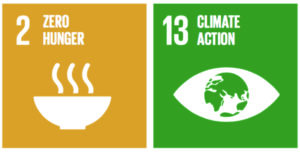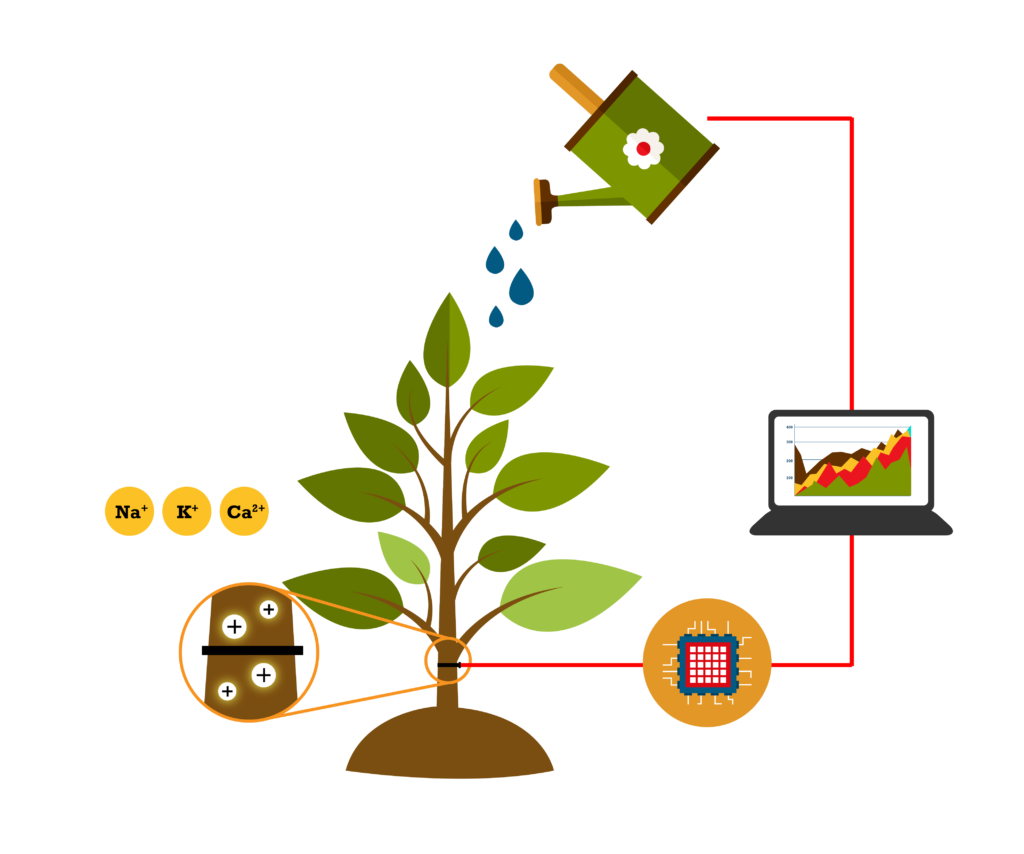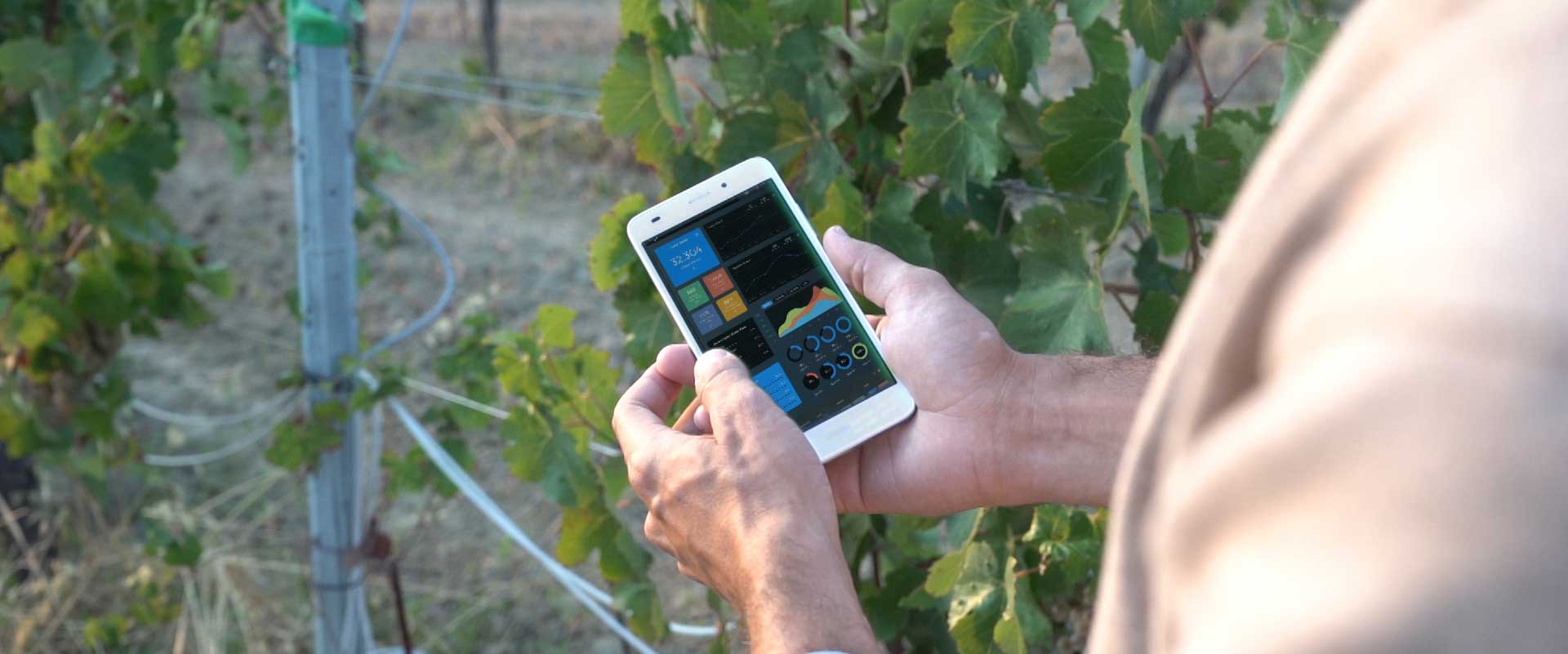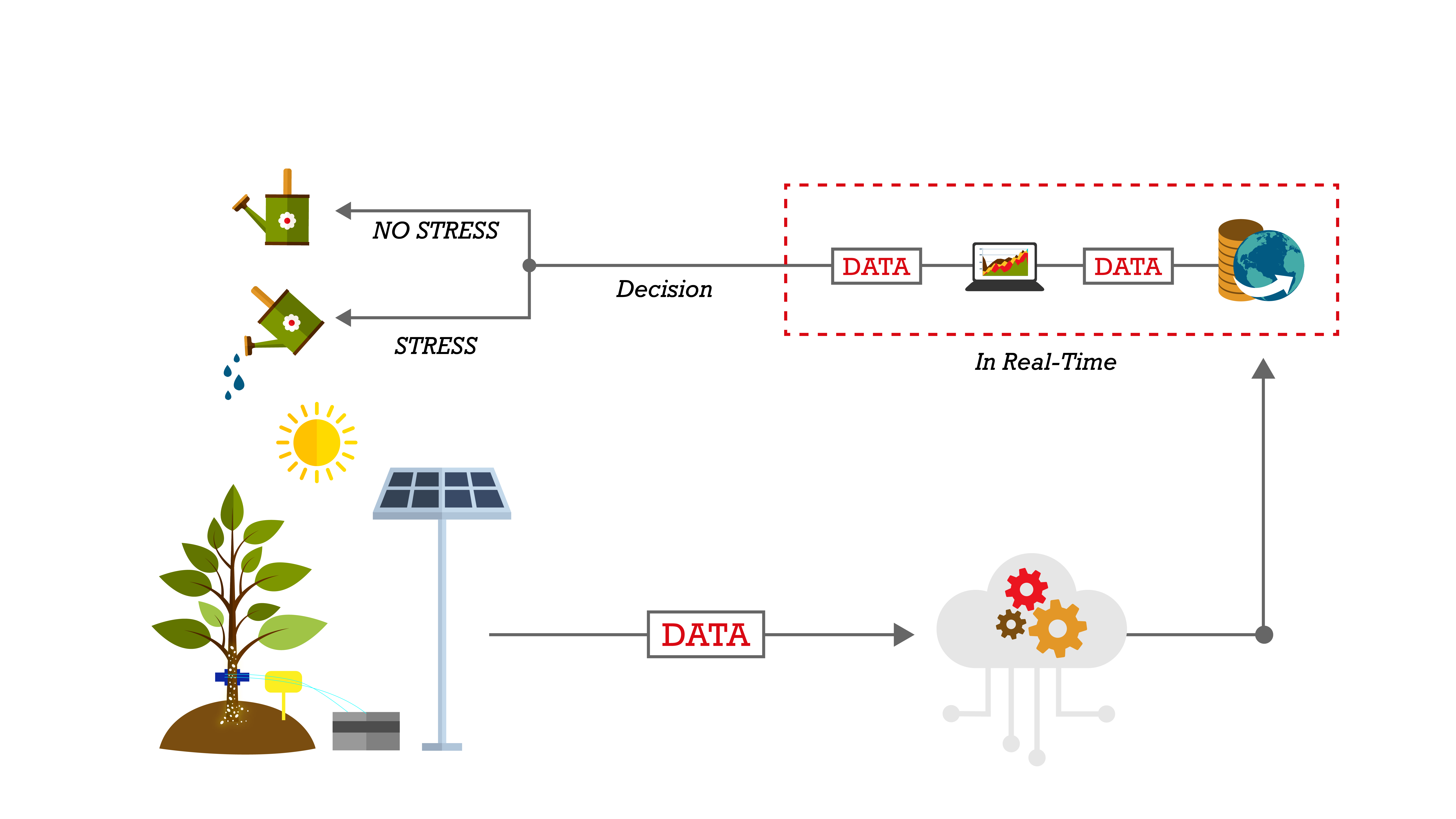bioristor technology
The agricultural sector is among the socio-economic sectors that will suffer the most serious consequences of climate change. Today, the need to feed a growing global population and the need to preserve the planet’s natural resources require new strategies to produce more while preserving the planet’s resources.
Technology is key to improving the sustainability of agricultural production and contributing to the achievement of SDGs 2 and 13.


One of the main objectives of Agriculture 4.0 is to save and make more efficient use of water resources, considering that agricultural production currently consumes 70% of the planet’s available water resources.
Our activity is to develop and to apply a biosensor (organic electrochemical transistor, OECT) that is inserted into the stem of plants and is able to continuously and in real-time monitor changes in the ionic composition of the plant’s sap.
The sensor is called BIORISTOR and it is composed of the main channel of the transistor and a second electrode that, subjected to an appropriate electric potential, generates the electric field that pushes the ions present in the liquid into the polymer deposited on the main wire.
The BIORISTOR has been applied to study abiotic stress in a controlled environment on numerous species, including tomatoes, kiwis, soybeans, grapevine, wheat and river reeds. In tomatoes, it is able to detect water stress within the first 30 hours of its onset.
In the field, the BIORISTOR is connected to an IoT control unit capable of transmitting the signal to an app, and it is able to detect the onset of water stress and potentially send a signal to the farmer or operating machines indicating that it is time to irrigate, allowing for a significant reduction in water waste and an increase in the sustainability of agricultural production.

The Bioristor is an innovative tool in the world of precision agriculture and agritech that allows for direct and precise acquisition of information on the real health conditions and actual needs of plants, including water, nutrients, and phytosanitary requirements.
Through the Bioristor, the plant is constantly interconnected with the agricultural operator, who can use this information to optimize agricultural practices, maximize production, minimize costs and waste, and preserve environmental sustainability. The data collected from the plant is continuously processed and analyzed using mathematical analytical models and artificial intelligence algorithms, such as Random Forest models to identify the actual health status of the plants, and Recurrent Neural Networks (RNN) with Long Short-Term Memory (LSTM) to make predictions up to 24 hours in advance.
Outputs for the farmer or agronomist are transmitted through a simple and effective graphical interface, which provides: i) indications on the correct water supply to be administered to the plants; ii) the type and quantity of commercial formulations to be used for fertilization; and iii) when and if to perform preventive phytosanitary treatments. Raw data is stored in a SQL database organized into different subject-based sub-tables. This allows the customer to adopt production strategies that guarantee the quality and quantity of production, increasing the efficiency of agricultural practices and income.
The use of the Bioristor can reduce irrigation water usage by 40%. Moreover, the system has a unique timeliness of intervention, able to act when and where needed, identifying diseases and pathologies that cause significant production losses.
